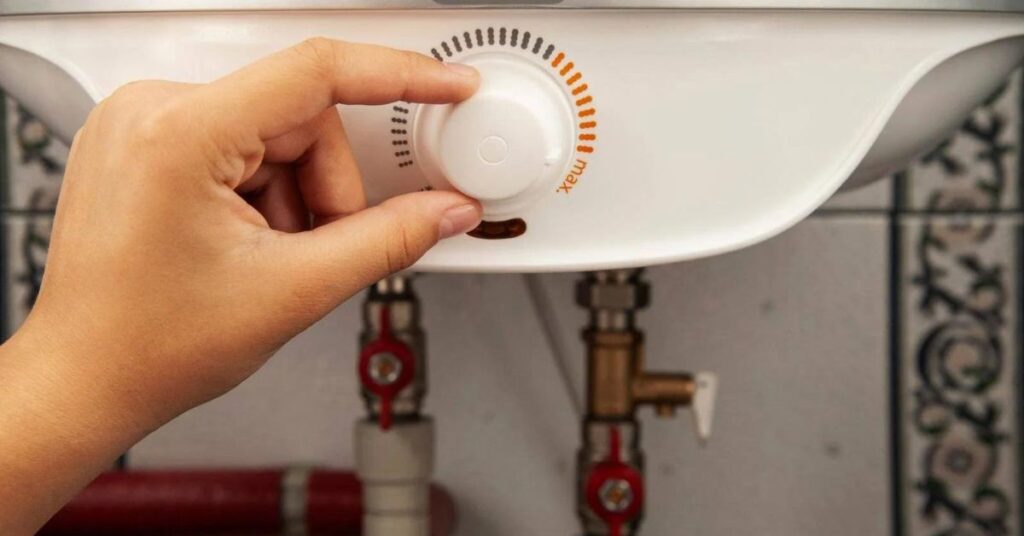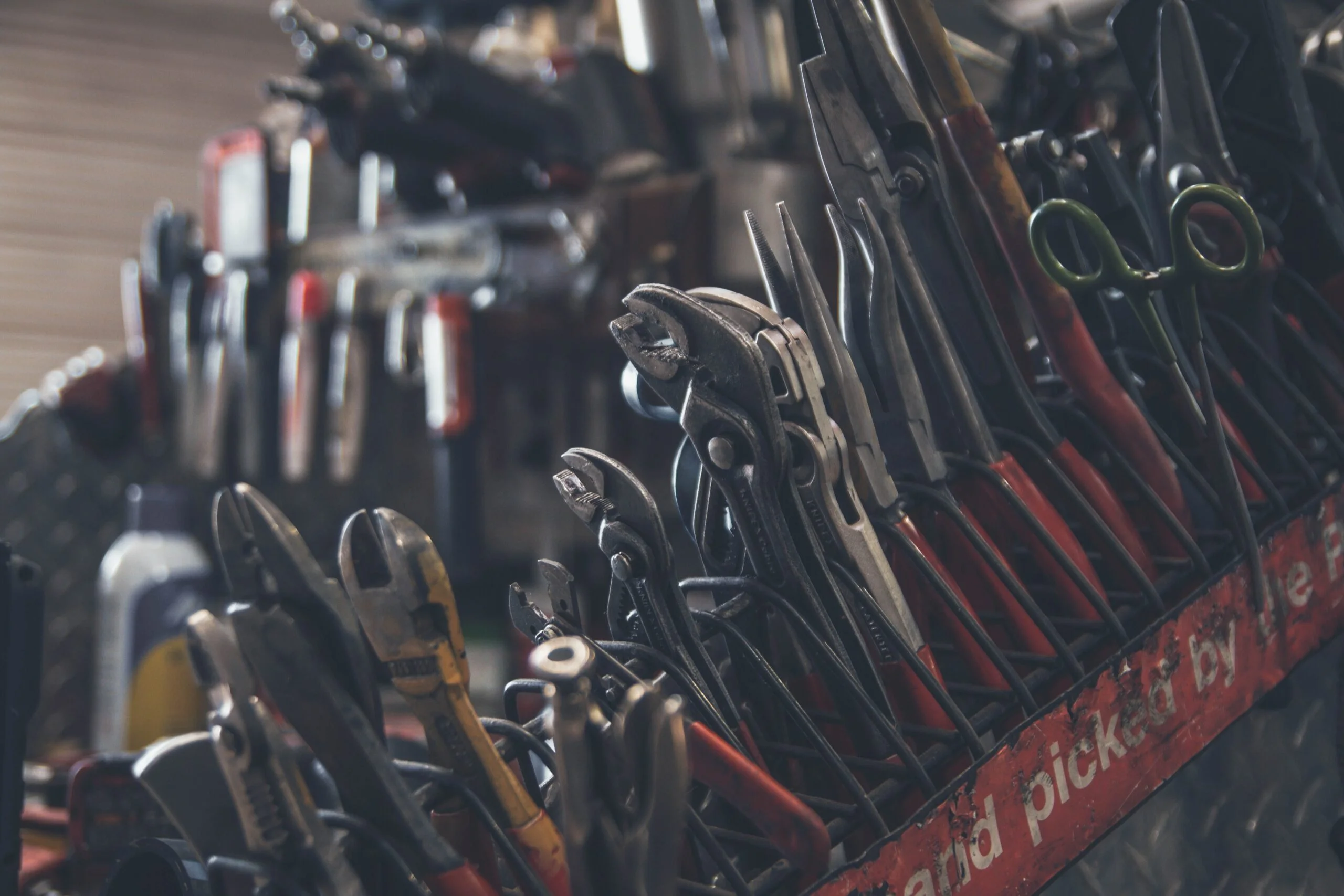The hot water heater is one of the most essential appliances in the home. In addition to a clean dish, it also ensures a pleasant shower. However, when the bottom of a hot water heater leaks, it’s a big deal. Today’s blog will explain why your hot water heater leaking from bottom.
With our help, you can restore the functionality of your hot water heater as soon as possible. Let’s look at why your hot water heater leaking from bottom.
Common Reasons Hot Water Heater Leaking from Bottom
There are lots of reasons why a hot water heater leaking from bottom. Determining the appropriate course of action requires understanding these root causes.
1. Corrosion and Rust Issues
Over time, sediment and minerals can accumulate in a water heater tank, causing corrosion. When metal reacts with water, rust forms, compromising the integrity of the tank and causing leaks. Regular tank flushing reduces corrosion risk by preventing sediment buildup.
2. Pressure Valve Problems
Maintaining safe pressure levels within the tank is crucial for the pressure relief valve. If this valve malfunctions, excessive pressure can build up, leading to leaks. Regular testing and replacing a faulty pressure relief valve are essential preventive measures.
3. Sediment Buildup in the Tank
Mineral deposits from hard water can accumulate at the bottom of the tank, forming a sediment layer. The sediment insulates the water from the heating element, reducing efficiency and accelerating corrosion. The water heater will last longer when the tank is flushed annually.
4. Faulty Drain Valve
Water heaters have drain valves at the base that allow sediment to be flushed periodically. A malfunctioning or leaking drain valve can contribute to water pooling around the heater. Inspecting drain valves regularly and replacing faulty ones immediately is essential.
5. Crack or Hole in the Tank
Cracks and holes in the tank can be direct sources of leaks. External factors or internal corrosion may cause this damage. Preventing catastrophic leaks requires routine visual inspections and fixing visible damage right away.
Homeowners can proactively address these issues, ensuring the longevity and efficient operation of their hot water heaters.
Signs of a Hot Water Heater Leaking Leakig from Bottom
It requires attention to subtle indicators to detect a hot water heater leaking from bottom. The following signs often signal an issue that must be addressed immediately.
1. Puddles or Water Pooling
Visible water around the base of your water heater indicates a leak. Check the surrounding area regularly for puddles or pooling water. It is essential to thoroughly check for leaks, as they may start small and worsen over time.
2. Rusty Water
It’s a sign of internal corrosion if your water looks discolored, especially when it’s hot. This rust may mix with the water supply, causing a health concern and showing a leak. If you notice rusty water, investigate promptly.
3. Unusual Sounds or Hissing
You should listen for abnormal sounds from the water heater, such as hissing, popping, or crackling. These may be signs of excessive pressure within the tank, potentially leading to leaks. Taking action early on can prevent further damage caused by pressure problems.
4. Reduced Hot Water Supply
A sudden reduction in hot water availability may indicate a leak. The compromised tank may have difficulty maintaining water levels, affecting its heating capacity. It is essential to investigate the cause of a noticeable drop in hot water output as soon as possible.
5. Water Heater Age and Visual Inspection
You should consider the age of your water heater. Leaks are more likely to occur if it’s older and shows any of these signs. Inspect the tank or connections regularly for rust, corrosion, or visible damage.
When these signs appear, take immediate action to diagnose the leak.
How to Diagnose A Hot Water Heater Leaking from Bottom
It’s essential to take a systematic approach to diagnosing a leaking hot water heater from bottom. Follow these detailed steps to identify the source of the leak and determine the appropriate course of action:
Turn Off the Power and Water Supply
Put safety first by turning off the power and water supply. Turn off the circuit breaker for electric heaters; set the gas control valve off for gas heaters. Taking this precaution ensures a safe working environment.
Locate the Source of the Leak
Thoroughly examine the entire exterior of the water heater. Focus on seams, connections, and the base. Use a flashlight to inspect less visible areas. Look for water trails, dampness, or visible pooling, as these can help you find the leak.
Check for Visible Damage or Corrosion
Check the tank’s exterior for signs of damage, including cracks, holes, or rust. Pay attention to the areas around heating elements, pressure relief valves, and pipe connections. Damaged components may need immediate repair or replacement.
Examine Pressure Relief Valve and Drain Valve
Check the pressure relief and drain valves at the bottom of the tank. Check for leaks, corrosion, or mineral buildup. Test the pressure relief valve by lifting and releasing the lever; it should allow a burst of water into the overflow pipe. Whenever one of the valves fails, it is crucial to replace it immediately.
If you follow these steps meticulously, you can find the leak and its potential cause.
When To Seek For Professional Help
You can fix some hot water heater problems yourself, but some situations require the expertise of a professional, especially in Dallas. You must know when to call a professional in Dallas to fix your hot water heater to avoid further damage. It’s best to consult a plumber if you see significant damage like cracks or rust.
A skilled professional must assess and fix internal tank leaks, often detected by persistent pooling around the base. Plumbers can provide practical solutions if DIY attempts at fixing leaks fail. Safety standards and local regulations require immediate professional attention regarding gas lines and electrical issues.
Furthermore, entrusting the job to a qualified plumber ensures correct installation and prevents hazards. If you want a reliable and efficient water heater system, consult a professional in Dallas with experience in water heater maintenance.
Read More: How to Research Your Water Heater Specialist
Conclusion
You must protect your hot water heater from leaks to keep it working. Knowing the causes, recognizing the signs, and taking preventive measures can extend the life of your appliance.
Diagnose leaks quickly and address them with DIY fixes or professional help. Maintaining a reliable hot water supply promotes comfort and convenience in your daily routine. Today’s proactive approach can save you tomorrow’s disruption.


